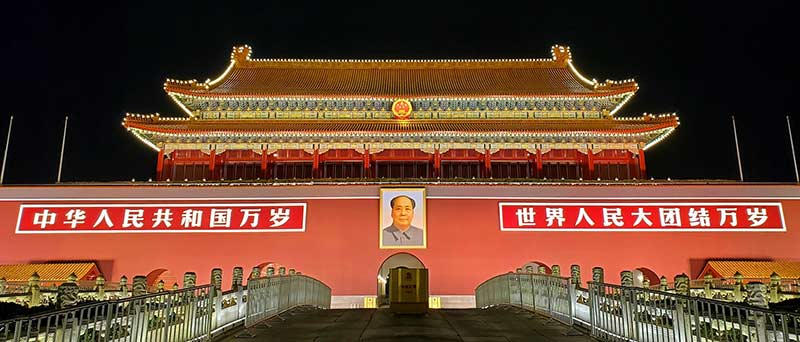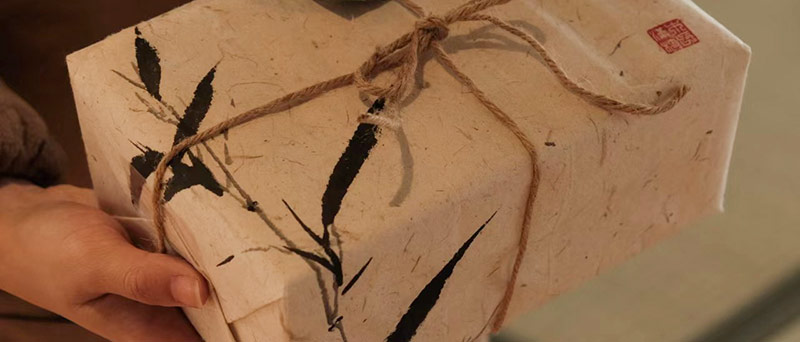
Etiquette plays a fundamental role in Chinese culture. For millennia, the people of China have upheld a rich tapestry of customs and traditions that shape their interactions with one another and with visitors from around the world. Understanding and respecting Chinese etiquette is not only a sign of cultural awareness but also a crucial skill for those looking to engage in business, travel, or social interactions within this vast and diverse nation. In this article, we will explore the key elements of Chinese etiquette, shedding light on the values, practices, and customs that guide social interactions in this ancient civilization.
Chinese etiquette tip #1: Taboos on Behavior

China, like any other country, has its own set of cultural taboos that are deeply rooted in its history, traditions, and social norms. These taboos can vary across regions and have evolved over time, but some of the most prominent ones include:
Political Criticism: Criticizing the Chinese government or its leaders, past or present, is a significant taboo. It can lead to serious consequences, including legal action and social ostracism.
Tiananmen Square: Discussing the events of the Tiananmen Square protests in 1989 is a sensitive topic. The Chinese government actively suppresses any information or discussion about this event.
Tibet and Xinjiang: Talking about the situation in Tibet or Xinjiang, particularly in relation to the rights and treatment of ethnic minorities in these regions, is a contentious issue. The Chinese government views discussions about these topics as threats to national unity.
Taiwan: Taiwan is a highly sensitive issue in China. Any suggestion of Taiwan’s independence is met with strong opposition and can result in backlash.
Cultural Revolution: The Cultural Revolution (1966-1976) is a period of history that is discussed with caution in China. It was a tumultuous time marked by political persecution, and many Chinese families have their own stories about its impact.
Religion: While China has a diverse religious landscape, discussing religious topics that challenge the government’s control over religious institutions or those that promote religious fundamentalism can be considered taboo.
Family Matters: In traditional Chinese culture, discussing family conflicts or airing family grievances in public is considered impolite. This includes issues related to marriage, divorce, and family disputes.
Sexuality: While attitudes toward sex and sexuality are evolving, open discussions about sex and sexual orientation are still somewhat taboo in Chinese society, especially among older generations.
Death: Chinese culture places a significant emphasis on respecting the dead. Open discussions about death, funerals, and mourning customs are generally approached with sensitivity.
Superstitions: There are numerous superstitions in Chinese culture, such as avoiding the number four, which sounds like the word for “death” in Chinese, and being cautious about gifts that symbolize death or bad luck.
Food Taboos: Certain foods may be considered taboo in specific regions or among certain groups, such as the consumption of pork, which is not eaten by the Uighur people living in Xinjiang due to religious reasons.
Discussing Personal Wealth: Openly discussing personal wealth or financial matters can be considered impolite, particularly in social settings.
Chinese etiquette tip #2: about Greetings
Greetings in China are more formal compared to some Western cultures.
Use Formal Titles: When meeting someone for the first time or in a formal setting, address them using their title and last name (e.g., “Mr. Zhang” or “Madam Li”). Using titles conveys respect in Chinese culture.
Greetings: When greeting someone, a simple and polite “Nǐ hǎo” (你好) for “Hello” is appropriate. If you know the person’s last name, you can add it after “Nǐ hǎo” to make it more personal, like “Nǐ hǎo, Li Xiānsheng” (你好,李先生) for “Hello, Mr. Li.”
Bowing: While not common in modern China, a slight bow or nod of the head can be a sign of respect, especially when interacting with elders or superiors.
Handshakes: Handshakes are common in business and formal settings. When shaking hands, use a firm but not overly aggressive grip. It’s also courteous to give a slight nod of the head while shaking hands.
Respect Personal Space: Chinese people may have a different concept of personal space, so be mindful of personal boundaries when shaking hands or engaging in physical contact. It’s polite to maintain a respectful distance.
Addressing Elders and Superiors: When addressing elders or superiors, use honorifics and titles, such as “Xiānsheng” (先生) for Mr. or “Nǚshì” (女士) for Mrs. Follow local customs and cues regarding formalities.
Eye Contact: While eye contact is generally appreciated in Western cultures, in China, excessive or prolonged eye contact can be seen as impolite. Maintain moderate eye contact, especially when conversing with superiors.
Politeness: Be courteous and polite in your interactions. Saying “xièxiè” (谢谢) for “thank you” and “duìbuqǐ” (对不起) for “I’m sorry” when appropriate shows respect.
Chinese etiquette tip #3: Being a good guest – Remove Shoes Indoors
In many Chinese homes, it’s customary to remove your shoes before entering. Pay attention to the host’s behavior, and if they remove their shoes, it’s a sign for you to do the same.
Chinese etiquette tip #4: Being a good guest – Gift Giving
Gift giving in China is a longstanding and important cultural practice deeply rooted in tradition and etiquette. It plays a crucial role in personal relationships, business dealings, and various social contexts. Here are some key aspects of gift giving in China:
Symbolism: Chinese culture places great emphasis on the symbolic meaning of gifts. It’s important to choose gifts that carry positive connotations, such as items that reflect good luck, health, or happiness. It is considered polite to present and receive gifts with both hands.
Occasions: Gift giving is common on various occasions, such as being a guest, weddings, birthdays, New Year (particularly during the Chinese New Year), and other major celebrations. It’s also customary to give gifts during business meetings, particularly when establishing or maintaining good relationships with business partners.
Red Envelopes (Hongbao): Red envelopes, or “hongbao,” containing money are a traditional way to give gifts, especially during the Chinese New Year. These red envelopes symbolize good luck and prosperity. They are commonly given by elders to younger family members or from bosses to employees.

Gift Wrapping: Presentation matters. Gifts are typically wrapped elegantly, and it’s considered polite to offer and receive gifts with both hands. The recipient may also refuse the gift initially as a sign of modesty or politeness before ultimately accepting it.
Taboos: Certain gifts are considered inauspicious or inappropriate. Avoid items associated with funerals, like white or black colors, clocks (as they symbolize time running out), and sharp objects, as these may be seen as negative omens.
Reciprocity: Reciprocity is expected when it comes to gift giving. If you receive a gift, it’s customary to reciprocate with one of similar value and thoughtfulness.
Business Etiquette: In the business world, gift giving can be a delicate practice. It’s important to adhere to corporate policies and guidelines to avoid any perception of bribery or impropriety. Gifts in business settings should be given and received with discretion.
Regional Variations: China is a vast and diverse country with various regions and ethnic groups, each having its unique customs and traditions related to gift giving. What’s acceptable in one region may differ from another.
Modern Changes: While traditional gift giving remains essential in China, there’s also a growing trend towards more contemporary and practical gifts, particularly among the younger generation.
Chinese etiquette tip #5: Being a good guest – Dining Etiquette
Chinese dining etiquette is an important aspect of Chinese culture and is characterized by various customs and traditions. Proper etiquette is seen as a sign of respect and good manners. Here are some key points to keep in mind when dining in a Chinese setting:
Seating Arrangements:
The host or the most senior person is typically seated at the head of the table, and the guest of honor is often seated to their right.
Wait to be directed to your seat, and don’t sit down until the host indicates where you should sit.
Use of Chopsticks:
Don’t stick chopsticks upright in a bowl of rice, as this resembles incense at a funeral and is considered bad luck.
Don’t point or gesture with your chopsticks, and don’t use them to pass food to someone else’s chopsticks.
Sharing Food:
Chinese meals are often served family-style, with dishes placed in the center for everyone to share.
It’s polite to wait for the host to start serving and to let them choose dishes first.
When taking food from a shared dish, use the public chopsticks.
Toasting:
Toasting with alcohol, such as wine or baijiu, is common during Chinese meals.
When toasting, it is customary to hold your glass lower than the glass of the person you’re toasting, as a sign of respect.
It’s polite to stand when toasting and make eye contact with the person you’re toasting.
Table Manners:
Avoid making noise while eating, such as slurping or burping.
Place your napkin on your lap, and do not place it on the table.
Do not reach across the table; instead, ask someone to pass a dish to you.
Compliments and Praise:
Compliment the food and the host’s cooking skills to show appreciation.
It’s common to say “好吃” (hǎo chī) to express that the food is delicious.
Leftovers:
It’s common to leave a little food on your plate to indicate that you are full. Finishing everything may imply that you are still hungry.
If you don’t want to eat more, simply say “够了” (gòu le), which means “I’ve had enough.”
Paying the Bill:
The person who extended the invitation is usually expected to pay the bill. However, it’s customary for others to offer to pay as a gesture of politeness.
Chinese etiquette tip #6: Tipping
Tipping in China is quite different from tipping customs in many Western countries. In fact, tipping is not a common practice. Here’s what you need to know about tipping in China:
No Tipping Tradition: Historically, China does not have a tipping culture, and tipping is not considered customary. Chinese hospitality and service providers typically do not expect tips.
Exceptional Service: Tipping is more common in high-end establishments, such as luxury hotels and upscale restaurants that cater to international travelers. Even in these places, it’s not obligatory, and the staff may not always accept tips.
Service Charges: Some restaurants and hotels in China automatically include a service charge on the bill. This charge is meant to compensate the staff and is usually around 10-15% of the total bill. If this service charge is included, there’s generally no need to leave an additional tip.
Refusals: In some cases, if you try to tip, service staff may politely refuse. They may perceive tipping as a sign of dissatisfaction with their salary or as impolite.
Gifting: Instead of tipping, it’s more culturally appropriate to show appreciation by offering small gifts, especially if you’ve built a rapport with someone providing you a service. Gifts like snacks or local souvenirs can be a thoughtful way to express your gratitude.
Tour Guides and Drivers: When using the services of a tour guide or a driver, tipping is more common. In these cases, tipping is expected and appreciated. It’s a good idea to inquire about the appropriate amount to tip, as it can vary depending on the region and the service provided.
Unofficial Guides: Be cautious when hiring unofficial guides, as tipping expectations may be higher in these situations, and some guides may pressure tourists for larger tips.
Bargaining in Markets: When shopping in local markets, bargaining is common. While it’s not exactly tipping, you can negotiate the price with the vendor. However, it’s essential to be respectful and fair in your negotiations.
Chinese etiquette tip #7: Wearing Taboos in China
In China, like in many cultures, there are several traditional taboos associated with clothing and dressing. These taboos have historical, cultural, and superstitious roots, and while they may not be strictly adhered to by everyone in contemporary China, they are still influential, especially in more traditional or formal settings. Here are some common wearing taboos in China:
White and Black at Joyous Occasions: White and black are traditionally associated with mourning and funerals in Chinese culture. Wearing white or black clothing at celebratory or joyous occasions, such as weddings and festivals, is considered highly inappropriate. It’s best to choose colorful and bright attire for such events.
Red at Funerals: Red is a color symbolizing happiness, celebration, and good fortune in China. It is the dominant color in Chinese weddings. Wearing red to a funeral is a sign of disrespect to the deceased and their family. Mourning attire in China is typically white or muted colors.
Wearing Damaged or Tattered Clothes: Wearing clothes that are visibly torn or damaged is seen as a sign of disrespect for oneself and others. It is especially inappropriate when attending formal gatherings, weddings, or funerals.
Shorts in Temples and Religious Sites: When visiting temples or religious sites in China, it’s essential to dress modestly and respectfully. This means avoiding revealing clothing, such as shorts and tank tops. It’s recommended to wear long pants or skirts and cover your shoulders.
Improper Footwear at Formal Events: When attending formal events, like banquets or weddings, wearing casual footwear, such as sneakers or flip-flops, is considered disrespectful. It’s best to opt for formal or semi-formal shoes.
Inappropriate Dressing at Work: In the workplace, dressing appropriately is essential. Wearing overly casual or revealing clothing may be considered unprofessional. Different workplaces may have specific dress codes, so it’s important to be aware of and adhere to them.
Overly Flashy or Showy Attire: Wearing excessively flashy, ostentatious, or showy clothing, especially in a modest or conservative setting, can be considered impolite and inappropriate.
Tattoos in Certain Settings: While attitudes toward tattoos are changing, particularly among younger generations, tattoos are sometimes associated with rebellion or non-conformity in China. They may be viewed negatively in formal or traditional settings, and individuals with visible tattoos might encounter bias.
Chinese etiquette tip #8: About Public Displays of Affection
Public displays of affection (PDA) in China can be a complex and culturally sensitive topic. China has a rich history and diverse culture, which has influenced the way people perceive and express affection in public. Here are some key points to consider when discussing public displays of affection in China:
Traditional Values: Chinese culture has traditionally placed a strong emphasis on modesty and self-restraint, particularly in public. Public displays of affection, such as kissing and hugging, have historically been considered inappropriate and even disrespectful.
Changing Attitudes: In recent years, there has been a noticeable shift in attitudes toward PDA, especially among the younger generation. This is partly due to exposure to Western culture through media and travel, which has led to a more open attitude towards public displays of affection.
Regional Variations: China is a vast country with diverse regional cultures. Attitudes towards PDA can vary significantly from one region to another. In major metropolitan areas like Beijing and Shanghai, you may see more PDA, while in more conservative rural areas, it is less common.
Gender Roles: Gender roles and expectations play a significant role in how PDA is perceived. While holding hands is generally more acceptable, more intimate displays of affection may still raise eyebrows, especially if the couple is same-sex.
Privacy and Respect: Even in more permissive urban areas, there is an understanding that certain levels of PDA should be kept private out of respect for others. Couples may still opt to reserve their more intimate moments for private settings to avoid making others uncomfortable.
Public Spaces: Public spaces like parks and shopping centers have different norms regarding PDA. In parks, you may see couples walking hand in hand or sitting close on benches, while shopping centers tend to be more conservative.
Cultural Context: When discussing PDA in China, it’s crucial to consider the cultural context and the local norms. What might be considered acceptable in one setting might not be appropriate in another.
Legal Implications: While it is generally not illegal to engage in PDA, there are limits. For example, any behavior that violates public decency or could be seen as indecent exposure is subject to law enforcement action.
Chinese etiquette tip #9: Respect Elders
Respecting elders in China is a deeply ingrained cultural value that has been upheld for centuries. This tradition is rooted in Confucianism, which has had a profound influence on Chinese society and values. Here are some key aspects of respecting elders in China:
Filial Piety: Filial piety, known as “xiao” (孝) in Chinese, is one of the core principles of Confucianism. It emphasizes the importance of children showing deep respect and devotion to their parents and elders. It involves obedience, care, and consideration for the wishes and needs of one’s parents and grandparents.
Hierarchical Family Structure: Chinese families typically have a hierarchical structure, with the eldest members, such as grandparents and parents, holding a position of authority and respect. Younger family members are expected to defer to their elders and seek their guidance and approval in important matters.
Chinese New Year and Family Gatherings: Family reunions during the Chinese New Year (Spring Festival) are a crucial occasion for demonstrating respect for elders. Younger family members offer well-wishes, express gratitude, and give gifts to their elders during this time.
Use of Honorific Titles: In the Chinese language, specific honorific titles are used to address elders as a sign of respect. For example, “爷爷” (yéye) is used to address one’s paternal grandfather, “奶奶” (nǎinai) for paternal grandmother, “爷爷” (wàigōng) for maternal grandfather, and “奶奶” (wàipó) for maternal grandmother.
Elderly Care: It is common for Chinese families to provide care and support for their elderly members. This can include financial support, living arrangements, and assistance with daily tasks. Many Chinese families prioritize keeping their elders close and providing for their needs in their old age.
Public Etiquette: Respecting elders is not limited to the family; it extends to the broader community. In public settings, people are expected to show deference and politeness to older individuals, yielding their seats on public transportation or helping them with their needs.
Confucian Values: The principles of benevolence, righteousness, and propriety (仁义礼) outlined in Confucianism emphasize the importance of treating others with kindness, honesty, and respect. These values are closely tied to the practice of respecting elders.
Chinese etiquette tip #10: Learn Basic Mandarin Phrase
While not everyone in China speaks English, learning a few basic Mandarin phrases such as greetings and polite expressions can go a long way in establishing a positive connection with locals. Read the article, English in China, to learn how English is used in China and the basic communication phrases you should know when travelling in China.
Understanding and respecting Chinese etiquette is essential for building positive relationships and ensuring smooth interactions in China. It’s important to remember that Chinese etiquette is rooted in centuries of tradition, so showing respect for these customs is a way of acknowledging and embracing the profound history and culture of this remarkable nation. As a guest or visitor, your willingness to learn and practice these customs will undoubtedly be appreciated by the people you encounter, making your experiences in China all the more enriching and harmonious.



